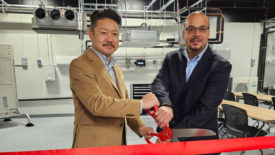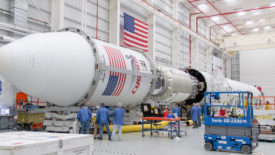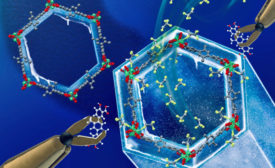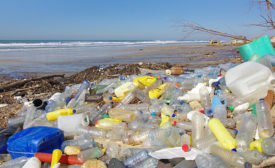Home » Keywords: » research
Items Tagged with 'research'
ARTICLES
The 7,200-square-foot facility will be located 15 miles north of Dallas and minutes from DFW and DAL airports
Read More
NAE awards two Grainger engineering grants
One grant supports deep generative AI for materials informatics, while the other supports micro-grid resiliency
April 15, 2024
Science enabling heat and air conditioning for long-term space habitats is almost fully available
Experiment on International Space Station aims to investigate how reduced gravity affects condensation
November 1, 2023
Rheem opens new Fort Smith innovation learning center
Rheem celebrates grand opening of its cutting-edge Innovation Learning Center (ILC) in Fort Smith, Arkansas
October 14, 2023
Researchers Find Recent Federal Legislation Will Support Three Million Jobs Per Year
Research examines jobs created by the Inflation Reduction Act, Bipartisan Infrastructure Law, CHIPS and Science Act
September 18, 2023
US Can Cut Building Emissions by 91%, Modeling Study Shows
Scientists chart an emissions decrease from the 2005 high of 91% if energy-saving measures are taken
August 31, 2023
CO2 Ventilation Breakthrough Could Turn City Rooftops into Bumper Vegetable Gardens
Scientists find that expelled air from ventilation systems can make corn and spinach grow taller and larger, recycling CO2-rich indoor air to fertilize edible plants.
October 24, 2022
PNNL Research Supports the Case for More Efficient Air Conditioning
New research from Pacific Northwest National Laboratory (PNNL) provides a roadmap outlining how more efficient cooling systems are feasible with development and support from industry.
September 17, 2022
Get our new eMagazine delivered to your inbox every month.
Stay in the know on the latest HVACR engineering trends.
SUBSCRIBE TODAY!Copyright ©2024. All Rights Reserved BNP Media.
Design, CMS, Hosting & Web Development :: ePublishing









